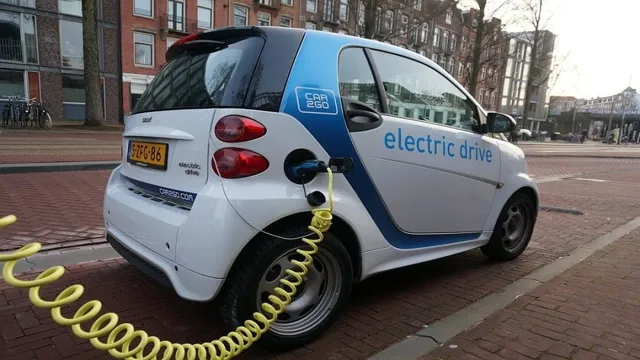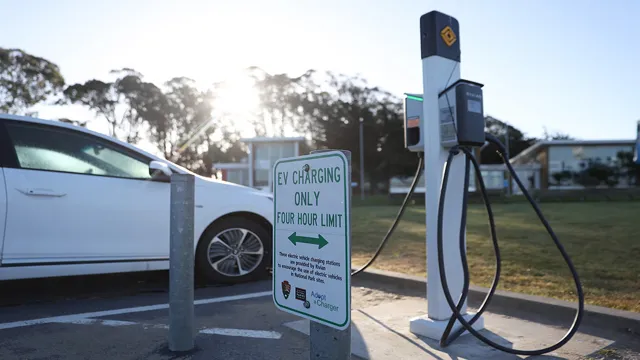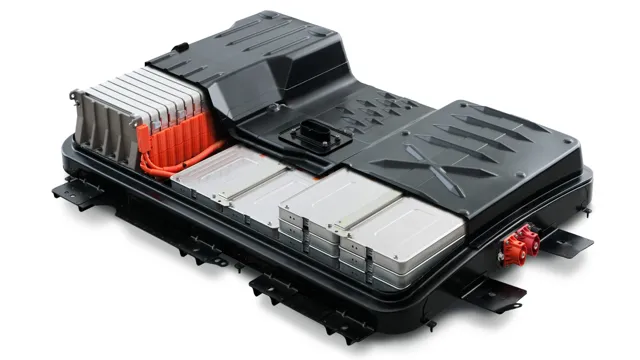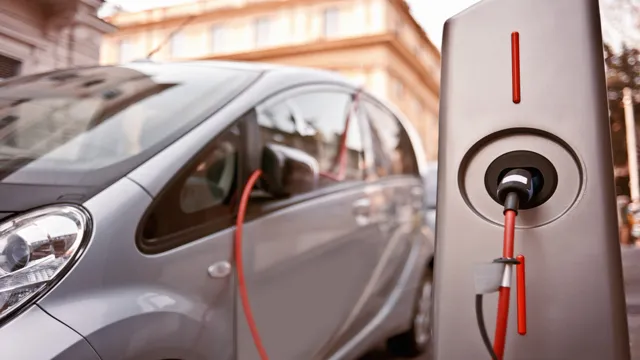Revving up the Future: Exploring the Latest Electric Car Technology
Get ready to experience the future of transportation with Electric Cars! These innovative vehicles are becoming increasingly popular worldwide as they offer a sustainable and eco-friendly alternative to traditional gasoline cars. Aside from their environmental benefits, electric cars are also more cost-effective over time and can save you on fuel expenses in the long run. With fascinating technology that runs on electricity instead of gas, these cars can go faster than you can imagine, making it an exciting option for car enthusiasts.
It’s time to leave your worries about polluting the environment and high fuel prices behind and move forward with the electric car revolution. Are you ready for the ride of your life?
What Is New Technology for Electric Cars?
Electric car new technology is constantly evolving and bringing groundbreaking features to the automobile industry. One of the most significant advancements is the use of solid-state batteries, which are lighter, safer, and more efficient than traditional lithium-ion batteries. Another promising technology is wireless charging, which allows drivers to power up their electric vehicles (EVs) without needing to plug them in.
In addition, the development of advanced driver assistance systems (ADAS) is also making EVs safer, more automated, and more comfortable to drive. These systems use cameras, sensors, and algorithms to help drivers avoid accidents and improve performance on the road. Overall, electric car new technology is helping to make zero-emissions driving more convenient, affordable, and accessible to everyone.
Advancements in Battery Technology
Advancements in battery technology have been a game-changer for electric cars. The latest technology in batteries sees advancements in materials and battery design, improving the range, durability, and charging time of electric vehicles. Lithium-ion, solid-state and graphene batteries are amongst the latest buzzword when speaking about new battery technology.
For example, solid-state batteries use a solid electrolyte instead of the liquid electrolyte that lithium-ion batteries use, which are safer and won’t expand when overheated, resulting in a longer lifespan. Graphene batteries use a carbon material that’s stronger than steel, lighter than paper, and has efficient heat dissipation and quick charging capabilities. These technological advancements provide better performance, longer ranges, and faster charging times for electric cars.
The days of range anxiety and long charging waits are becoming a distant memory, thanks to these technological advancements.
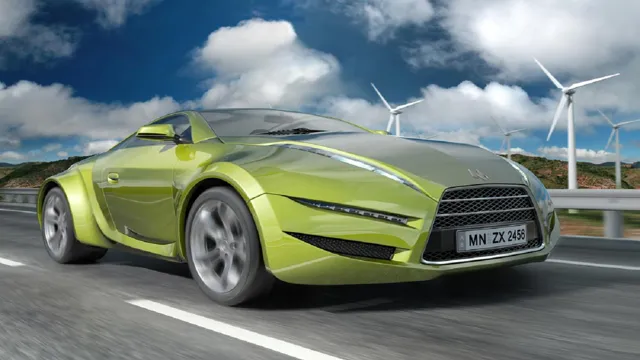
Wireless Charging Technology
Wireless charging technology is one of the latest innovations in the electric car industry. This technology has its roots in mobile devices, where charging cables can sometimes be a hassle. In the same vein, wireless charging for electric cars allows drivers to “park and charge” without the need for cables or connectors.
This technology uses an inductive charging system that transfers electric power through an electromagnetic field between two coils, that is, the charging pad on the ground and the receiver on the vehicle’s underside. Though still evolving, wireless charging technology eliminates the need for human contact with charging cables and thus provides a more convenient and safer way to recharge electric vehicles. So, imagine driving into your garage and having your car automatically start charging while you go about your business – that’s the future of electric cars, and wireless charging technology is making it possible.
Electric Cars vs Gasoline Cars
Electric car new technology has drastically changed the automobile industry. With gasoline prices continually fluctuating, consumers have been searching for alternate options. Electric cars have made their debut in the industry, and they’ve brought a lot of buzz with them.
Unlike traditional gasoline cars, electric cars run on electricity, which means the only emissions produced are from the power plant they’re plugged into. These cars are incredibly cost-efficient as you can charge them from home without visiting a gas station. There’s also the obvious environmental advantage of electric cars.
They’re eco-friendly and reduce our carbon footprint on the planet. The new technology has even brought new and modern designs to electric cars, such as Tesla’s sleek futuristic look. While there are still some obstacles to overcome, electric cars are quickly becoming more popular and accessible, and it’s exciting to see the new technology develop in this field.
Environmental Benefits of Electric Cars
In recent years, the environmental benefits of electric cars have become increasingly apparent. When compared to gasoline cars, electric cars have a significantly lower carbon footprint, as they emit no harmful greenhouse gases during operation. This means that electric cars are a much cleaner option for the environment, as they help to reduce air pollution and combat climate change.
Furthermore, electric cars also require fewer natural resources to produce, as they do not rely on as many raw materials as gasoline cars. This means that they are more sustainable and have a much lower impact on the natural world. Overall, electric cars are a great way to promote environmental sustainability, and they offer a number of benefits that extend far beyond just transportation.
By investing in electric cars, we can help to create a cleaner and more sustainable future for generations to come.
Cost Comparison of Long-term Ownership
When it comes to the long-term ownership of a car, cost is a significant factor to consider. In comparing electric cars to gasoline cars, electric cars prove to be the more cost-effective option in the long run. Although the upfront cost of an electric car may be higher, the cost savings in fuel and maintenance expenses will make up for it in the long run.
Electric cars have significantly lower fuel costs since they rely on electricity and not gasoline. Moreover, they require less maintenance as they have fewer moving parts, no oil changes, and fewer brake replacements. Gasoline cars, on the other hand, require frequent oil changes and have higher fuel costs in the long term.
Over time, the cost savings of owning an electric car make it the more practical and budget-friendly option.
Performance and Maintenance Differences
When it comes to performance and maintenance, there are some significant differences between electric cars and gasoline cars. Firstly, electric cars offer significantly faster acceleration compared to gasoline cars. The electric motors provide instant torque, allowing for a quick and smooth takeoff.
Gasoline cars rely on their engines, which require time to build up power and speed. However, electric vehicles do require regular maintenance, such as tire rotations and brake pad replacement. These maintenance tasks tend to be cheaper than those required for gasoline cars, as electric vehicles have fewer moving parts and require less oil changes.
On the other hand, gasoline cars need regular oil changes and engine maintenance, which can add up in terms of costs. So, while electric cars may be more expensive upfront, the lower maintenance costs can offset the price difference in the long run. Overall, both electric and gasoline cars have their unique benefits and drawbacks when it comes to performance and maintenance.
Upcoming Electric Car Models
Electric car new technology is revolutionizing the auto industry with a flood of new models set to hit the market in the coming years. One of the most highly anticipated new models is the Tesla Model Y, which promises to be even more innovative and affordable than its predecessor, the Model The Model Y is expected to have improved performance, longer range, and new features like a full glass roof and a Power Liftgate.
Another new electric vehicle that has garnered attention is the Ford Mustang Mach-E, which combines the classic style of the Mustang with the latest electric technology. With a range of up to 300 miles and a top speed of 80 mph, the Mach-E is set to be a game-changer in the electric car market. Other upcoming models include the Audi e-tron GT, the GMC Hummer EV, and the Volkswagen ID.
As electric car technology continues to advance at a rapid pace, consumers have more options than ever when it comes to environmentally-friendly and high-performance vehicles.
Tesla Model S Plaid
The upcoming release of the Tesla Model S Plaid has been generating a lot of buzz in the electric car industry. Expected to have a range of over 500 miles, this sporty electric car boasts some impressive features, including acceleration from 0 to 60 miles per hour in under two seconds. This lightning-fast acceleration puts the Model S Plaid in the same league as some of the world’s most powerful cars.
But what makes this electric vehicle so special is its use of new battery technology that allows for faster charging and longer range. With all of these features, the Tesla Model S Plaid is poised to be a game-changer in the electric car industry and a top choice for those looking for a high-performance alternative to gas-guzzling cars.
Lucid Air Dream Edition
The Lucid Air Dream Edition is one of the most anticipated upcoming electric car models. This luxury vehicle boasts impressive specs like a range of over 500 miles on a single charge and an acceleration of 0-60 mph in under 5 seconds.
The Dream Edition also comes with advanced driver assistance features and a futuristic design that sets it apart from other electric cars on the market. The Lucid company has pioneered innovative technology in the EV industry, including their breakthrough battery technology that allows for longer ranges and faster charging times. The Dream Edition is a testament to this commitment to innovation and will surely make heads turn on the streets.
With sustainability becoming a top priority for consumers, the Lucid Air Dream Edition offers a stylish and eco-friendly option for those seeking luxury and performance in an electric car.
Conclusion: The Future Is Electric
The emergence of electric cars can be seen as a spark of hope for a cleaner and more sustainable future. With zero emissions, reduced carbon footprint, and improved technologies, electric cars offer a practical solution to our ever-growing environmental issues. It’s time we let go of the old and outdated notions of gas-guzzling vehicles and embrace the new era of electric technology.
After all, it’s not just a trend; it’s a revolution that calls for all of us to play our part in creating a better world for generations to come. So let’s drive forward towards a brighter future, one electric car at a time!”
FAQs
What is an electric car?
An electric car is a vehicle that runs on electric power rather than gasoline or diesel.
How do electric cars differ from traditional cars?
Electric cars do not have a traditional combustion engine and use electricity to power the motor. They are also generally more energy-efficient and have lower emissions.
What are the benefits of owning an electric car?
Electric cars offer a more environmentally-friendly option with lower emissions. They can also have lower operating costs and require less maintenance than traditional cars.
What is the range of an electric car?
The range of an electric car can vary depending on the model and battery capacity, but typically ranges from 100-300 miles on a single charge.
How long does it take to charge an electric car?
Charging times can vary depending on the type of charger and battery capacity, but can range from a few hours with a fast charger to several hours with a standard charger.
